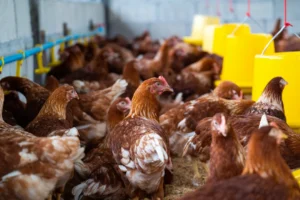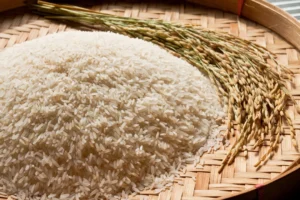Market instability is a significant concern for the agricultural commodities sector. The dynamic nature of global markets means that various factors can influence prices, availability, and overall market conditions. Understanding these factors is crucial for businesses operating in this sector to navigate challenges and seize opportunities. In this post, we will explore how currency fluctuations, trade wars, pandemics, and climate crises impact the agricultural commodities market.
Currency fluctuations can have profound effects on the agricultural commodities sector. When exchange rates fluctuate, the cost of importing and exporting goods can change dramatically, affecting profitability and pricing strategies. Businesses must stay vigilant and adapt to these changes to maintain competitiveness in the global market.
Trade wars also pose significant risks to the stability of the agricultural commodities market. Tariffs and trade barriers can disrupt supply chains, increase costs, and limit market access. Companies must develop strategies to mitigate these risks, such as diversifying their markets and building strong relationships with multiple suppliers and buyers.
Currency Fluctuations
Currency fluctuations can significantly impact the agricultural commodities sector by altering the cost of imports and exports. When a country’s currency depreciates, its exports become cheaper and more attractive to foreign buyers, potentially increasing demand. However, the opposite is also true; a strong currency can make exports more expensive and less competitive, reducing demand.
Businesses must closely monitor exchange rates and employ hedging strategies to protect against adverse currency movements. By doing so, they can stabilize their pricing and maintain profitability despite fluctuating exchange rates. Additionally, companies can explore entering into long-term contracts with fixed prices to mitigate the impact of currency volatility.
Trade Wars
Trade wars introduce another layer of complexity to the agricultural commodities market. When countries impose tariffs and trade barriers, the cost of doing business increases, and supply chains can be severely disrupted. For example, a trade war between major economies can lead to higher tariffs on agricultural products, making them more expensive for consumers and less competitive globally.
To navigate these challenges, businesses should diversify their markets and reduce dependence on any single trading partner. Building strong relationships with multiple suppliers and buyers can provide a buffer against the uncertainties of trade wars. Additionally, companies can advocate for fair trade practices and engage in dialogue with policymakers to minimize the impact of protectionist measures.
Pandemics
Pandemics, such as COVID-19, have highlighted the vulnerability of the agricultural commodities sector to global health crises. The pandemic disrupted supply chains, labor availability, and transportation networks, leading to significant market instability. Lockdowns and restrictions on movement affected the production and distribution of agricultural commodities, causing delays and shortages.
Businesses must develop robust contingency plans to manage the impact of pandemics. This includes diversifying supply chains, investing in technology to enhance resilience, and ensuring the health and safety of workers. By being proactive, companies can minimize disruptions and continue to meet the demands of their customers.
Climate Crises
Climate crises pose long-term risks to the agricultural commodities sector. Extreme weather events, such as droughts, floods, and hurricanes, can devastate crops and disrupt production. Climate change also affects the availability of water and other essential resources, making it increasingly challenging to maintain consistent agricultural output.
To address these challenges, businesses should invest in sustainable practices and technologies that enhance resilience to climate change. This includes adopting water-efficient irrigation systems, diversifying crop varieties, and implementing sustainable land management practices. By prioritizing sustainability, companies can mitigate the impact of climate crises and contribute to the long-term stability of the agricultural commodities market.
Conclusion
Market instability, driven by currency fluctuations, trade wars, pandemics, and climate crises, presents significant challenges for the agricultural commodities sector. Businesses must stay vigilant, adapt to changing conditions, and develop strategies to mitigate these risks. By doing so, they can navigate the complexities of the global market and maintain their competitive edge.
At Sax Trading LLC, we understand the challenges posed by market instability and are committed to helping our partners navigate these uncertainties. Our expertise, reliable supply chain, and commitment to quality make us the ideal partner for your agricultural commodity needs. Request a quote today and discover how we can support your business in these turbulent times.








